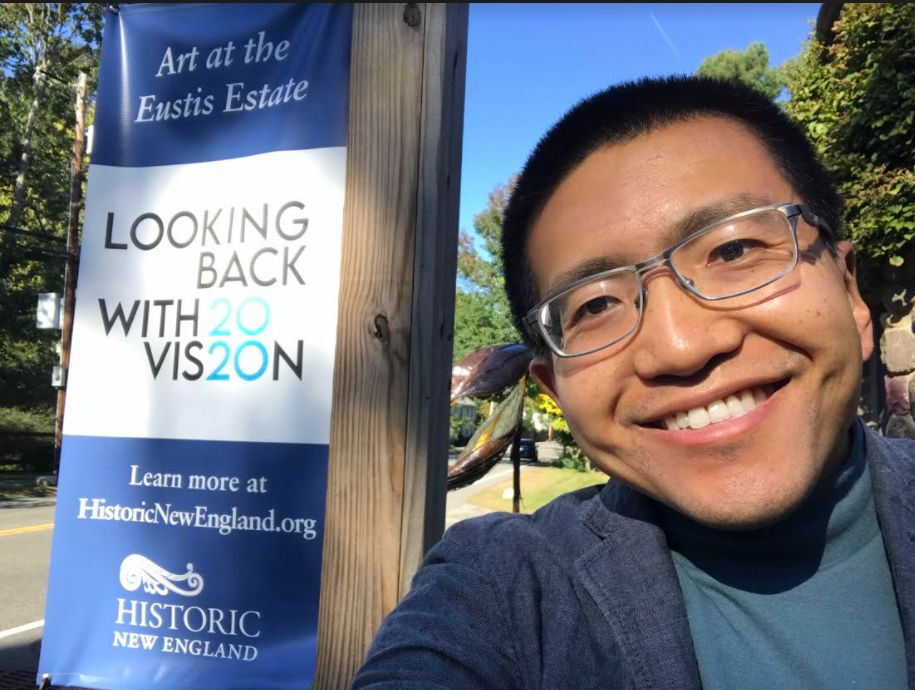
Tian Atlas Xu connects his doctoral research with public engagement
Historic New England, founded in 1910 as the Society for the Preservation of new England Antiquities, is the oldest regional heritage organization in the United States. It is dedicated to preserving and making available to the public historic building museums and landscapes, archiving historical materials as well as books and manuscripts, and engaging the visiting public and educational groups throughout New England.
Tian Atlas Xu, who completed and defended his doctoral dissertation in Catholic University’s Department of History in the summer of 2021, is now the first scholar in residence at Historic New England. He wishes to use his work to “connect historical research with public engagement.” Dr. Xu notes that his current position allows him to expand his dissertation, entitled "Navigating Worthiness in America: White Attorneys, Black Civil War Pensioners, and Chinese Immigrants, 1862-1930,” to a scale that includes the New England region: “I am building on my dissertation study to explore the historical work of Gilded Age New England attorneys among Black Civil War pensioners and Chinese immigrants, with a special focus on the intersections of race, labor, domestic life, and state building in the region.”
His daily work in residence is divided into two parts: cultivating new growth on the “old vines” of his dissertation and joining his colleagues to recover the forgotten voices behind the Historic New England properties. The organization’s 38 properties, mostly private homes before they became museums open to the public, are gateways to understanding white middle and upper-class New Englanders’ most intimate experience with labor, race, and ethnicity. In his first three weeks, Dr. Xu has encountered records about Black workers on a Rhode Island farm, an abolitionist’s summer retreat in Connecticut, and a room filled with Chinese ornaments, including original 18th century wallpapers imported from China, at Beauport. These stories inspire him to reflect on the roles of Blackness and Chineseness in the “Yankee” domestic life, and how such interactions of people, goods, and ideas gave rise to popular interpretations, even policy making, about ethnicity and “worthiness” in American history.
Wherever Atlas’s career path may take him in the future, his position at Historic New England is a reminder of the successes that alumni of the History Department’s graduate programs have had in recent years: a track record of the possibilities that graduate study in history opens up, in the variety of directions training in research, teaching, and engagement can lead (more information here).
